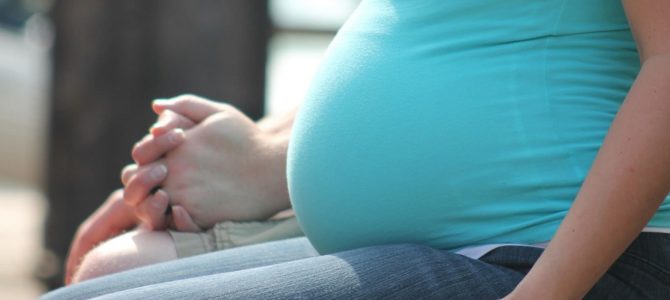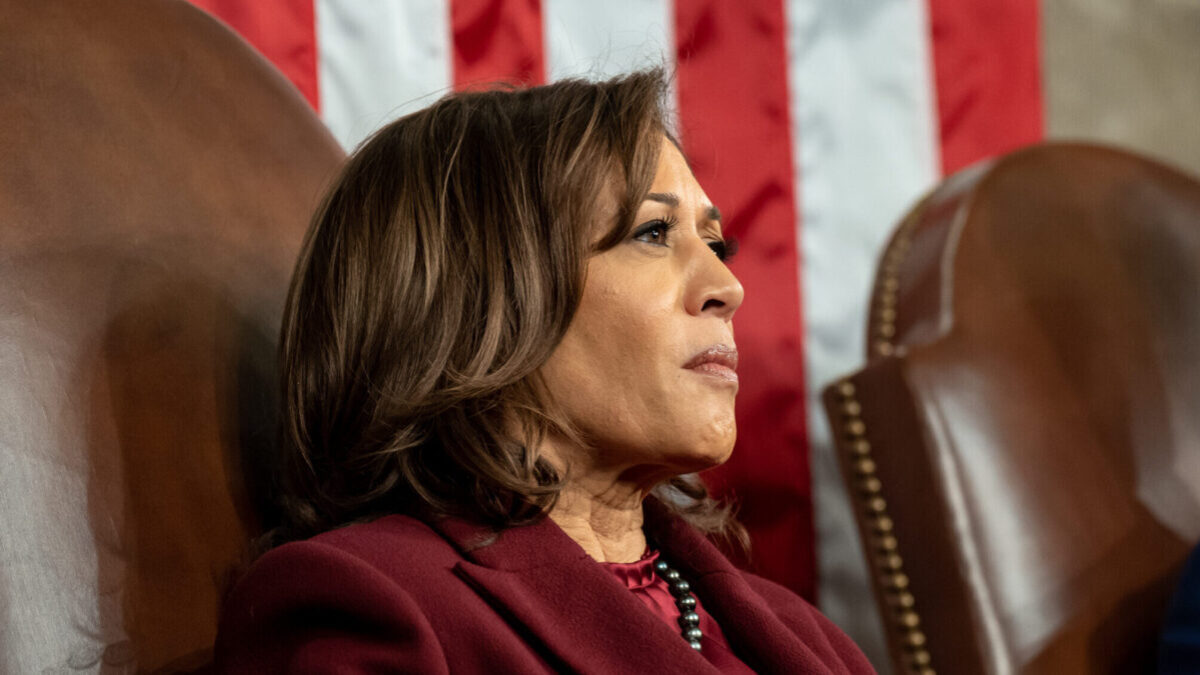
With President Trump’s nomination of Judge Brett Kavanaugh for the Supreme Court vacancy created by Justice Anthony Kennedy’s retirement, Roe v. Wade may be at long last on its way to the trash-heap of constitutional history. The only real question is whether it meets a swift execution or death by a thousand cuts. It is, therefore, worth revisiting a debate that the Supreme Court appears ready to correct for at least a generation.
Proponents of legalized abortion often define their position in terms of a woman’s right to choose. In its simplest form, this position argues that every person has the right to choose how he would like to live and that, with some exceptions for the sake of law and order, government should not be able to tell people differently. Most other positions on this side, from bodily autonomy to demands for exclusively female opinions on abortions, stem from the basic belief that humans have the right to dictate the terms of their own lives.
Opponents of legalized abortion, on the other hand, pick a different issue upon which to stake their tent: the sanctity of life. This side holds that every life is sacred and worthy of social and governmental protection — in essence, believing that abortion is murder.
While both camps make their fair share of arguments, their reluctance thus far to directly engage the other side makes it unlikely that society will progress towards a better understanding of this highly divisive issue.
The Question of When Life Begins
Much of the pro-life side has dedicated itself to solving the medical mystery of when life begins. Is it at the first heartbeat or the first brainwave? The first twitch of muscle or the first kick? Or any other number of significant first functions of major organ systems?
This line of questioning, while well-conceived, is problematic for three reasons. First, there is little scientific consensus on which of these firsts actually begins life.
Secondly, as Michael Gerson writes in The Washington Post, such inquiries are pointless because the commencements of significant bodily functions are merely few of many milestones in the progressive development of an existing life and do not establish the beginning of one. That is to say, a fetus already is a life and further organic developments of that life are just that — developments.
Thirdly and most importantly, the pro-life movement’s dedication to this line of inquiry is self-destructive because the question itself, regardless of how it is answered, is wholly irrelevant to the debate. Even worse, it distracts all sides from addressing far more crucial aspects of the debate.
Indeed, it is entirely unnecessary to show when life begins; just the fact that an innocent life is being summarily ended should settle the debate for good. The most skeletal of Due Process Clause interpretations demands nothing less.
The only way, then, for the pro-life movement to win is to take the fight to the other side. The war must be waged upon the left’s battlefield of individual rights. This is not merely because they refuse to budge from their misguided position but because this venue makes the battle easier for pro-lifers to win.
Let’s Fight About Why More Developed People Get Rights
Regardless of social or political affiliation, few actually take issue with the fact that the fetus whose right to life is being debated is a human fetus, which, if left alone, will become a more developed human — human in the same, consistent, species-specific sense throughout all stages of development. But even here, where there should be no debate on a fetus’s human value, liberals typically drive in a wedge.
For in the world of legalized abortion, not all humans are equal. Some are just “parasites” in the female body or “collections of cells.” This level of dehumanization, which would probably make even John Calhoun blush, is but a means to a grotesque end. By seeking the power to terminate a pregnancy, abortion activists institute a hierarchy of human value in which the more biologically developed human has a far greater stake in self-determination and a more protected right to life than does one who is not as developed.
The rationale backing this idea is as chilling as the ends to which it is employed. Indeed, once a fetus has been relegated to the class of inferior in value, it can never hope to compete with the needs or rights of those who have greater human value.
This is not merely true where like parameters are implicated — the fetus’s life versus the mother’s life, for example. Rather, an unborn child’s chance of prevailing on its own inherent human value is just as unwaveringly hopeless even when its right to life is pitted against something as patently undeserving of governmental sympathy as someone’s busy schedule or future plans.
What drives this categorical devaluing of the human fetus? Quite plainly, the level of biological development. In the world of legalized abortion, the status of being human in itself has little value. Instead, human value depends on the level of biological development. Those on the lower end of the human value totem pole, like fetuses, are said to have no right to self-determination or even life, while those on the higher end, like fully developed adult females, have the right to be spared even the inconvenience of a human dependent.
This Is the End of Inalienable Human Rights
Indeed, now it appears that a new, aggressively pro-abortion faction has begun to take shape. As Wesley Smith at First Things predicts, this faction attempts to solve some of its innumerable moral shortcomings by embracing such a human hierarchy, while simultaneously dismissing its “moral relevance.” If there was any question about the pro-choice movement’s disdain for natural rights, its pro-abortion successor puts to eternal rest all such doubt.
This remastered lack of respect for the inherence of human value has, among its many consequences, a particularly dire strain. In hierarchically arranging human value, whatever the parameters for doing so might be, one instantly discards the single core ideal that was at the heart of the French Revolution, the American War for Independence, the establishment of American democracy, the abolitionist movement, and the civil rights movement: natural, unalienable rights.
Simply put, that all humans, by virtue of their mere existence, have a natural, equal, inviolable, and unqualified right to life and liberty. Indeed, it was solely on this basis that slavery and, later, segregation were considered profound moral evils, and it is only on the foundation of inherent natural rights for all humans that such a moral judgment can stand without siege.
If We Allow This Slip, We Must Allow Others
Pro-choice activists’ dismissal of natural rights raises another, arguably more, pressing question: if biological development can be used to arbitrarily determine how human one is and how deserving of rights, why can’t any other parameter be substituted? In fact, the dehumanizing parameter of biological development is but an extremely recent one when compared to others that have been around since the dawn of man.
Why not then recede to the millennia of racial dehumanization? If a fetus is less human than others because it is not developed enough, am I so too because I am not white enough? Or, keeping the parameter of development intact, how human is someone who is born with no legs?
Or is it age? Does a 40-year old have greater human worth than a ten-year old? By pro-choice logic, it follows that those with greater human value can choose to kill those beneath them. Where exactly should we draw this magical line to say that one side is more human while the other is less so?
I will offer this consolation to liberals: surely you can do no worse in drawing this line than Harry Blackmun did. This brings me to my central question: if a movement can devalue humans on the basis of biological development, why can others not do so on the basis of sex, sexual orientation, socioeconomic status, disability, race, ethnicity, or national origin?
This question applies just as well to arguments that seek to make bold rational strides but fall disastrously short. Take, for instance, what Smith at First Things calls “a blunt premise” by Mary Elizabeth Williams at Salon: “All life is not equal…A fetus can be a human life without having the same rights as the woman in whose body it resides. She’s the boss. Her life and what is right for her circumstances and her health should automatically trump the rights of the non-autonomous entity inside of her. Always.”
This is as morally decrepit and rationally inconsistent a concept as it is bold. Cross-apply her reasoning to a situation from the 1830s, and you get this: “A black person can be a human life without having the same rights as the man on whose plantation he resides. He’s the boss. The owner’s life and what is right for his economic circumstances and his health should automatically trump the rights of the inferior entity on his land. Always.”
Now apply this reasoning to the other parameters above and one will quickly notice how well Williams’ logic can be rationally extended to justify just about every moral atrocity in human history. This is the sort of moral poverty we embrace when human life is qualified by artificial factors and not afforded independent, freestanding respect.
As for ‘My Body, My Rules’
Finally, to the left’s most significant talking point that remains standing in this debate, a point that Williams makes with great fervor. It is known by many names, but “bodily autonomy” probably does it the most justice. This principle of “my body, my rules” argues that fetal residence within a womb automatically gives the woman control over the baby’s life or death.
This is logically and morally assailable on several levels. First, the presence of a baby within the confines of a woman’s body only establishes a relationship of dependency and not the sharing of a life. The baby is merely dependent on the mother for nourishment and growth in very much the same manner as a year-old child would be.
In both cases, the life of the baby is in every way its own — independent in moral and scientific contemplation from its mother’s. In neither case does the mother’s status as biological, emotional, financial, or material provider bestow her with any “right to choose” her dependent’s life or death because inconveniences, no matter how severe, must yield to the fundamental right of all to live.
Indeed, a woman’s critical role in any society is to safeguard her child from harm — a mandate that transcends any written law and is embedded in our very existence as an ordered, socially responsible civilization. Even where the mother wishes to abdicate her parental role, she has a morally upright and humane route to pursue: adoption. But in no case is she permitted to cause the death of a child that she is simply disinclined to care for, because that is murder.
In the end, beyond all the politically expedient outbursts about Roe v. Wade, there is no morally or rationally consistent manner in which to draw consensus on this issue except by unequivocally admitting the prevalence of natural rights. We must not only passively accept but must actively guarantee that all humans — fetuses, infants, adults, and the elderly — by sole virtue of their existence as humans and nothing else, are afforded in absolute terms the unalienable rights of life and liberty.
Moreover, we must hold true to the honored belief that all humans are equal, in value and in status, however biologically developed, colored, wealthy, gendered, or sexually oriented they may be. This fundamental principle of human equality was the ideal upon which America was conceived and the fulfillment of which Americans of every generation have fought so nobly to advance.
If we continue to reject this principle, we cannot justify a democracy premised on human equality. And Democrats can start thinking of alternate labels than “progressive,” because their ideas will send us back to the past.









